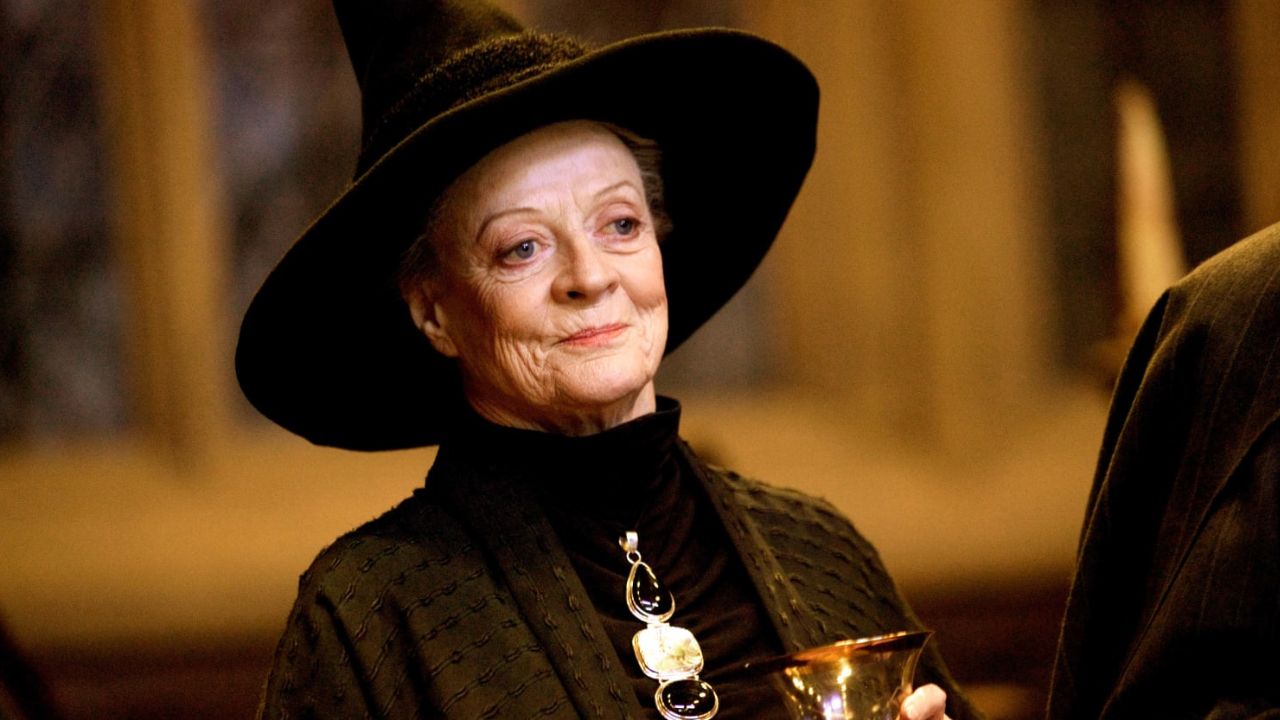Maggie Smith, who died on Friday aged 89, was an Oscar-winning legend of stage and screen, renowned for playing wide repertoire of characters during a decades-spanning career and personifying a particular kind of English eccentricity.
For more than 60 years, on stage and on screen, she excelled in whatever she turned her hand to, winning a Tony, two Oscars, three Golden Globes and five Baftas.
She became best-known in recent decades for her portayal of the kindly Professor McGonagall in the “Harry Potter” film franchise and the Dowager Countess in the hit television period drama series “Downton Abbey”.
Smith became an international star in the 1960s and 1970s, when she won Oscars for best actress in “The Prime of Miss Jean Brodie” (1969) and “Travels with my Aunt” (1972).
She was one of Britain’s most famous and beloved actors.
Her portrayal of the caustic Countess of Grantham, Lady Violet Crawley, in “Downton Abbey” (2010-2015), which was screened in over 100 countries, won her a new generation of admirers around the globe.
“It’s ridiculous. I led a perfectly normal life until Downton Abbey,” she told the British Film Institute in April 2017.
“I would go to theatres, I would go to galleries and things like that on my own. And now I can’t.”
Smith played the ruthless aristocrat in all six seasons of the show, created by screenwriter Julian Fellowes in 2010, winning a Golden Globe and three Emmy awards.
After initially declining to participate in a big-screen adaptation of the series, the actress eventually agreed to appear in the film, which was a hit around the world in 2019.
- Snooty schoolteacher –
Born on December 28, 1934, the daughter of a secretary from Glasgow and an Oxford professor of pathology, Smith made her stage debut in 1952 with the Oxford University Dramatic Society.
A string of stage successes in London’s West End and on Broadway followed, and she famously appeared opposite Laurence Olivier in 1959.
This led to her becoming a member of Olivier’s celebrated 1960s National Theatre company, where she earned critical acclaim alongside her husband, the actor Robert Stephens.
By the end of the decade, Smith’s film career had taken off.
She won the best actress Academy Award in 1969 for her unforgettable portrayal of a snooty, unorthodox Edinburgh schoolteacher in “The Prime of Miss Jean Brodie”.
She also picked up a best supporting actress award in 1978 for “California Suite” and, in all, won six Oscar nominations.
Smith’s marriage to heavy-drinking Stephens, with whom she had two sons, had collapsed in 1973 and they divorced two years later.
She remarried shortly after to screenwriter Beverley Cross, who died in 1998.
Smith was made a Dame of the British Empire in recognition of her work in 1990 and, beside the top honours, won many other stage and screen awards in both Britain and the United States.
- ‘Energy and curiosity’ –
Smith was widely considered a near-flawless actress, with the rare ability to make a cameo role a central feature of a film.
“(She) can capture in a single moment more than many actors can convey in an entire film,” said acclaimed director Nicholas Hytner after working with her on “The Lady in the Van” (2015).
“She can be vulnerable, fierce, bleak and hilarious simultaneously, and she brings to the set each day the energy and curiosity of a young actor who’s just started out,” he added.
Smith left some people feeling overawed.
“It’s true I don’t tolerate fools but then they don’t tolerate me, so I am spiky,” she told The Guardian in 2014.
“Maybe that’s why I’m quite good at playing spiky elderly ladies.”
Perhaps the best example was 2001’s “Gosford Park” — also written by Fellowes — in which Smith played the frightful Constance, Countess of Trentham, with aplomb.
She was credited with a dogged dedication to her craft.
She survived a breast cancer diagnosis in 2007 and filmed “Harry Potter and the Half-Blood Prince” two years later while enduring chemotherapy treatment.
“I was hairless. I had no problem getting the wig on — I was like a boiled egg,” she told The Times of the experience.
The actor also suffered from Graves disease, a manageable thyroid condition causing tiredness, weight loss and heart palpitations.
Smith is survived by her sons, actors Chris Larkin and Toby Stephens







